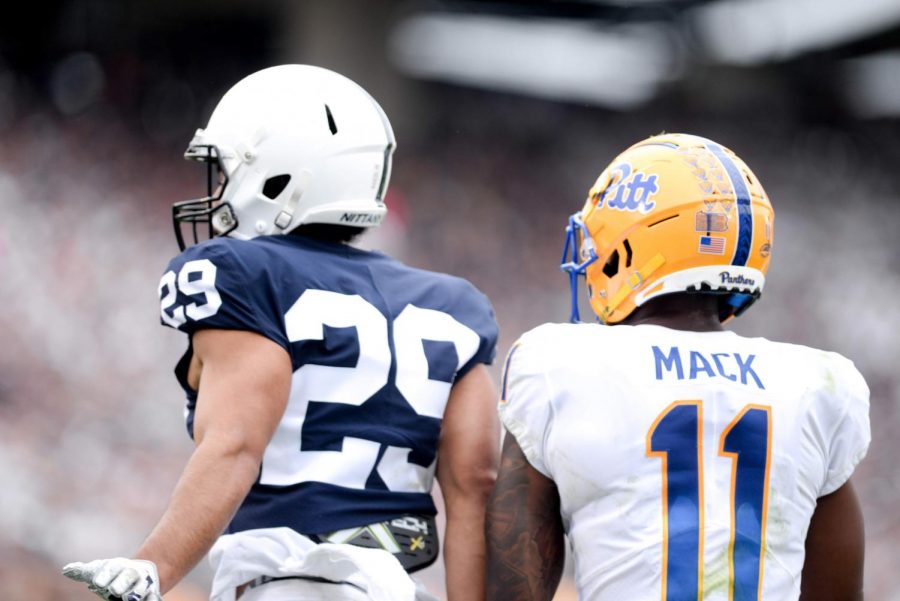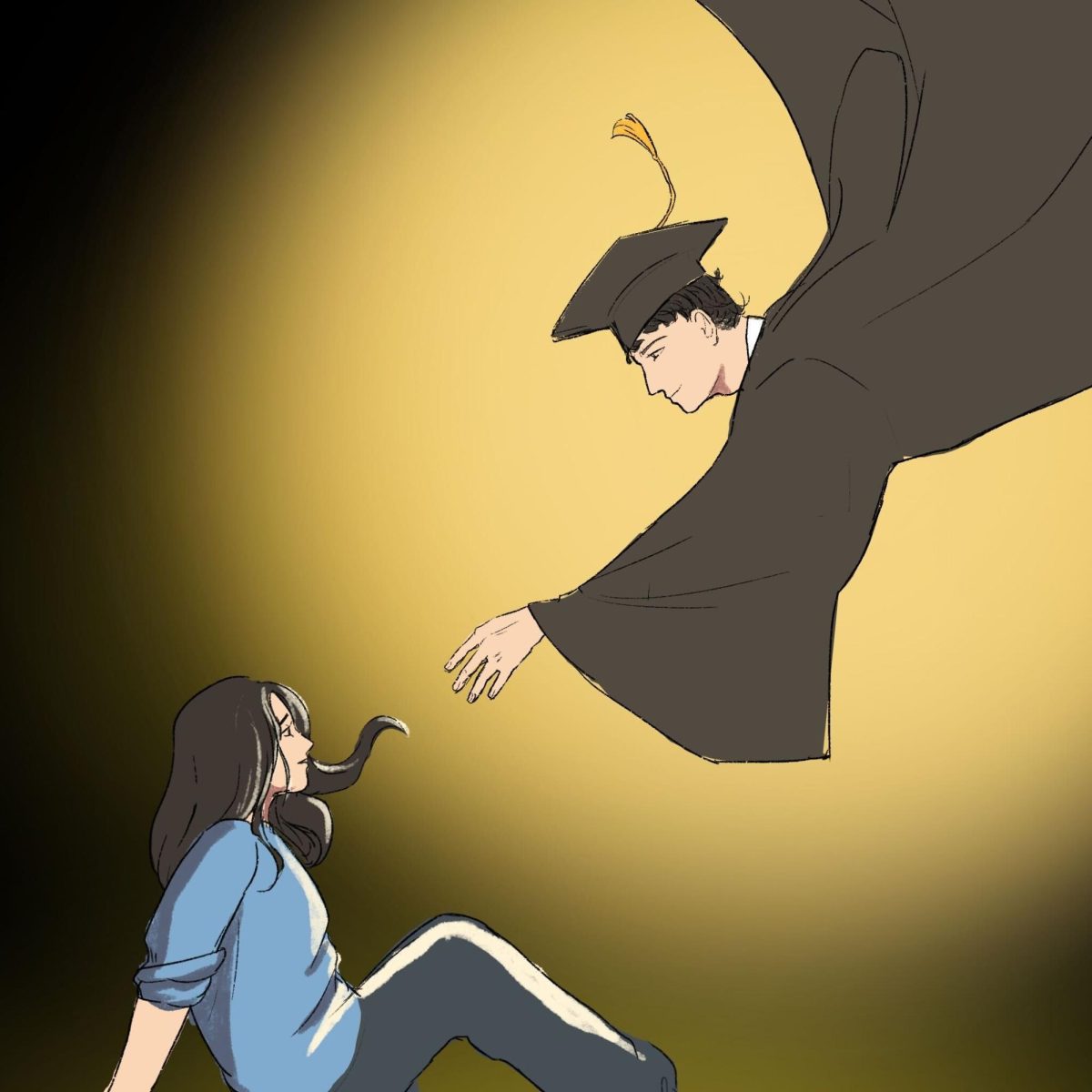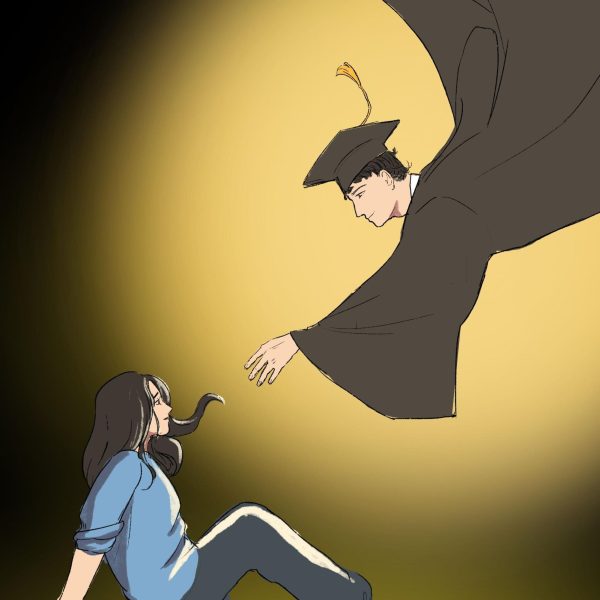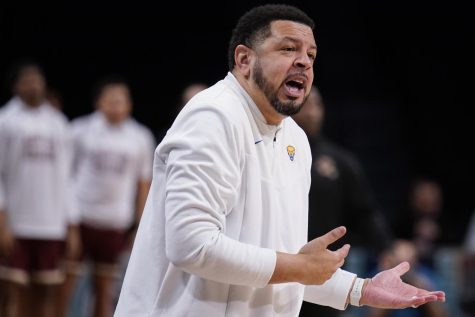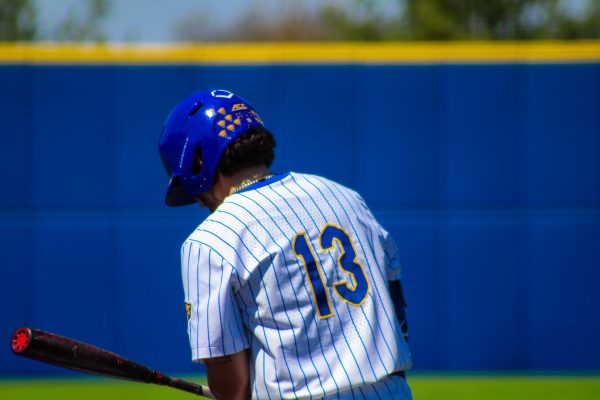NCAA takes first steps toward athlete compensation
The NCAA Board of Governors announced support in late April for rule changes to allow student-athletes to receive compensation for third-party endorsements.
May 12, 2020
Two weeks ago, the NCAA Board of Governors announced a surprising reversal in policy. At a late April meeting, the board supported rule changes to allow student-athletes to receive compensation for third-party endorsements related to their status as college athletes.
“It also supports compensation for other student-athlete opportunities, such as social media, businesses they have started and personal appearances within the guiding principles originally outlined by the board in October,” a board statement said.
The NCAA, coiners of the “student-athlete” label and staunch defenders of college athletics’ trademark amateurism, has drastically changed its tune. They’ve taken the first steps toward allowing college athletes to be legally compensated. While the statement does not establish anything concrete, it opens the door for a revolutionary change to college sports.
Rule changes outlined in the recommendation would allow student-athletes to “identify themselves by sport and school” in various profitable ventures, such as advertisements or endorsed social media posts, among others. But there are some restrictions. They would not be permitted to use trademarked school or conference logos in endorsements. All endorsements would also be strictly limited to third parties — NCAA member schools would be forbidden from paying an athlete for use of their name or likeness.
Guidelines set forth by the Board of Governors also included language that presented the possibility of federal involvement in enforcing image and likeness law, in addition to maintaining the NCAA’s distinction between student-athletes and employees. The Presidential Subcommittee on Congressional Action provided input on what congressional assistance the NCAA might need in those arenas, the board said.
The NCAA has been cautious in its words and will likely remain that way when implementing the rule changes, but it recognizes the need to modernize. Officials have said endorsement rules will be adapted as necessary.
Because this is the first step of the process, specifics are scarce in the Board of Governors’ recommendation, but what it does outline leaves questions for each of the NCAA’s three divisions and their rule-making structures to address, according to Val Ackerman, commissioner of the Big East.
“As we evolve, the Association will continue to identify the guardrails to further support student-athletes within the context of college sports and higher education,” Ackerman said.
Pitt has similar concerns as the NCAA, Athletic Director Heather Lyke said, namely how these rules trickle down into high school recruiting.
“We certainly understand the importance of modernizing NCAA rules and ensuring that we are taking care of our student-athletes to the fullest extent possible.” Lyke said. “The implications of NIL are wide ranging and significant. The initial concepts are extremely broad, so we now need to more fully develop this legislation and especially evaluate any unintended consequences. A big consideration will be guardrails that address and monitor potential recruiting inequities as well as how oversight will be handled.”
Ensuring that pay-to-play is avoided during recruiting and maintaining the student-athlete versus employee distinction are the primary concerns of the NCAA, according to the statement. Compensation from third parties will likely amplify the calls from current and former college athletes for a players union that can collectively bargain for pay directly from universities, so the NCAA will be careful to place the right legal protections on any legislation allowing for player endorsement deals.
Michael Drake, president of the Ohio State University and chair of the Board of Governors, said endorsement legislation has the potential to undermine what he called an “essential” link between athletics and higher education.
“We must continue to engage with Congress in order to secure the appropriate legal and legislative framework to modernize our rules around name, image and likeness,” Drake said. “We will do so in a way that underscores the Association’s mission to oversee and protect college athletics and college athletes on a national scale.”
Drake added that the recommendation included “considerable feedback from and the engagement of our members, including numerous student-athletes, from all three divisions.”
This recommendation from the board now moves down to the respective governing bodies for each of the three divisions of college sports to set their own rules, which are expected to take effect by the 2021-22 academic year.


